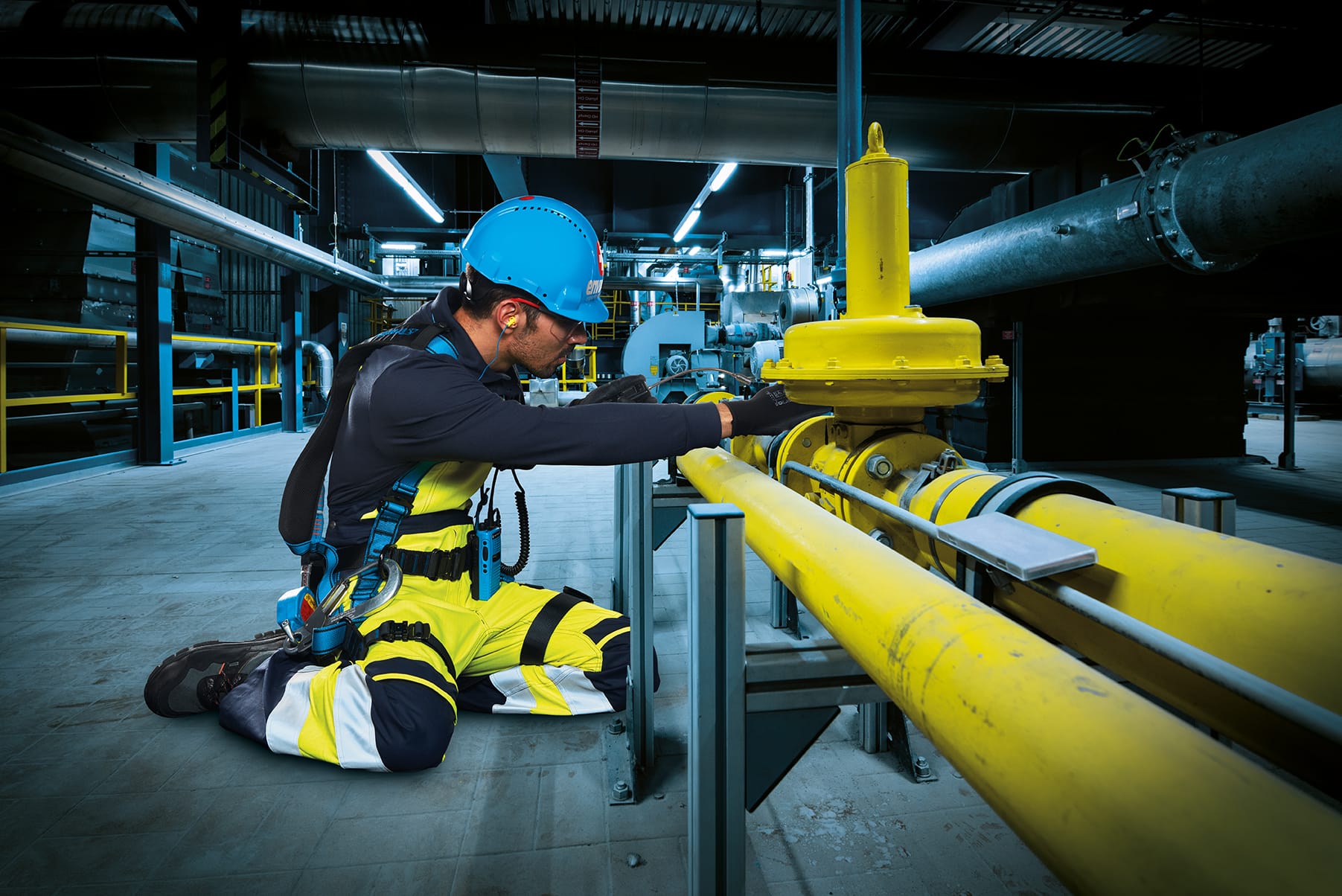Service and maintenance of burner installations
The following work is carried out during the service and maintenance inspection:
- Disassembly and inspection of liquid lances and nozzles.
- Maintenance of the burner housing
- Maintenance of the pilot burner and flame monitors
- Safety check of the pressure switches with a pressure switch tester
- Inspection of the safety chain
- Inspection of the oil station
- Inspection of the valve stations
- Inspection of the combustion air supply
- Visual inspection of all components and fittings
- Preparation of the adjustment protocol and documentation
- Fitting of gas lances and nozzles
- Leak test of all pipes and instruments
Safety inspection and maintenance of the burner
- Burner complies with the legal requirements for (periodic) safety inspection? → Certification
- Doesn’t the burner meet the legal requirements? → Clear and specific description of the problems so that they can be discussed with you and the necessary actions can be taken
Disassembly of the liquid lances
- Checking the burner settings towards the burner setting protocol
- Maintenance of the lances and nozzle
- Checking and, if necessary, replacing the O-rings in the liquid lines
- Checking the gas lines for possible damage
- Checking and, if necessary, replacing the seals
Image right, text left
Flame detector
- Cleaning the lens and checking the seal
Start burner
- Checking the lances for rust
- Check electrodes and isolators for damage
- Replace gaskets
Image right, text left
Inspecting the burner and fittings
- Cleaning the burner housing and accessories
- Cleaning the sight glass, replace seals if necessary
- Checking the burner brick for damage and caking
- Check burner fittings for damage
- Check the retraction device of the lances
- Check burner fittings and switches
- Check flexibility of the mechanical connection
- Check flexibility of the combustion air valve
- Visual inspection of the compensator in the combustion air line
- Check combustion air fan for contamination
Image right, text left
Check fuel supply and supply lines
- Visual inspection and cleaning of the fittings
- Check for visible traces of leaks
- Compare set points of pressure/temperature switches with the setting record
- Check pressure gauges
- Check damage to electrical connections
- Cleaning the fuel filter
Image right, text left
Visual inspection of fuel and atomiser lines
- Checking the pump station
Inspection of the electrical system
- Checking the lamps
- Check electrical connections and terminals
- Check electrical switches on lance retraction system
Image right, text left
Image right, text left
Checking the burner in operation
General inspection
- Check that all sealing and cooling air lines are open
- Observing the burner start-up sequence
- Observation of the burner controller
- Observing the retraction of the lance during operation
- Starting the burner with different fuels
- Observing the flame with all fuels
- Testing the density control
- Checking the fuel pressure
- Checking the atomisation pressure
- Starting and stopping the burner from the local control panel
- Observation of the extinction sequence
- Closing time of valves according to standard < 1 second
Image right, text left
Safety tests
- Flame detector
- Emergency stop
- Pressure switch combustion air
- Pressure switch combustion gas
- Fuel pressure switch
- DIKO fuel pressure switch
- Pressure switch atomiser
Fuel pressure switch
- Start burner control
- Working of the start burner
- Leak tightness of ignition gas line
- Ignition gas pressure
- Ignition air pressure
- Ionisation flow
Checking the fuel lines
- Leak tightness of the pipelines
- Pressure gauges / manometers
Image right, text left












